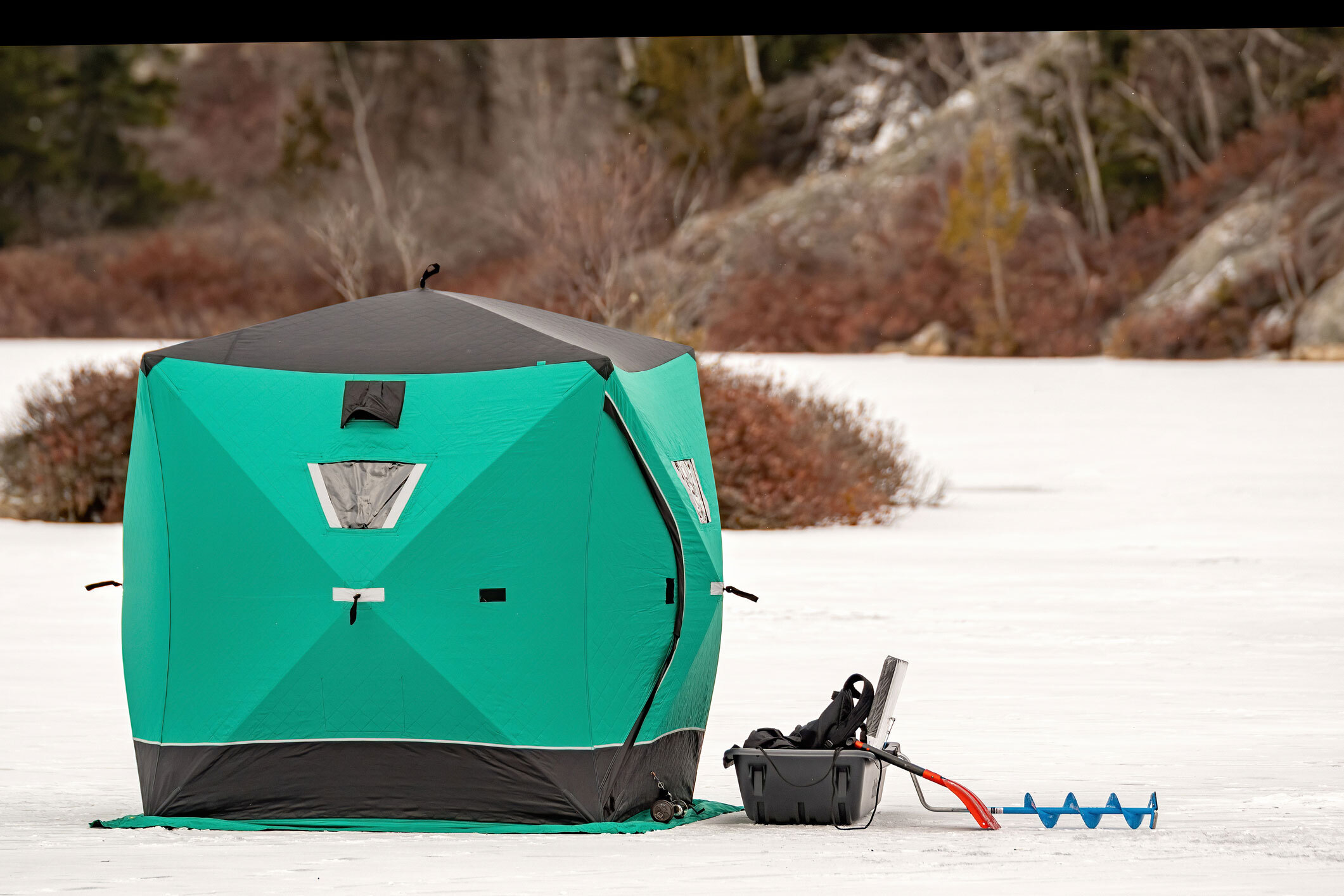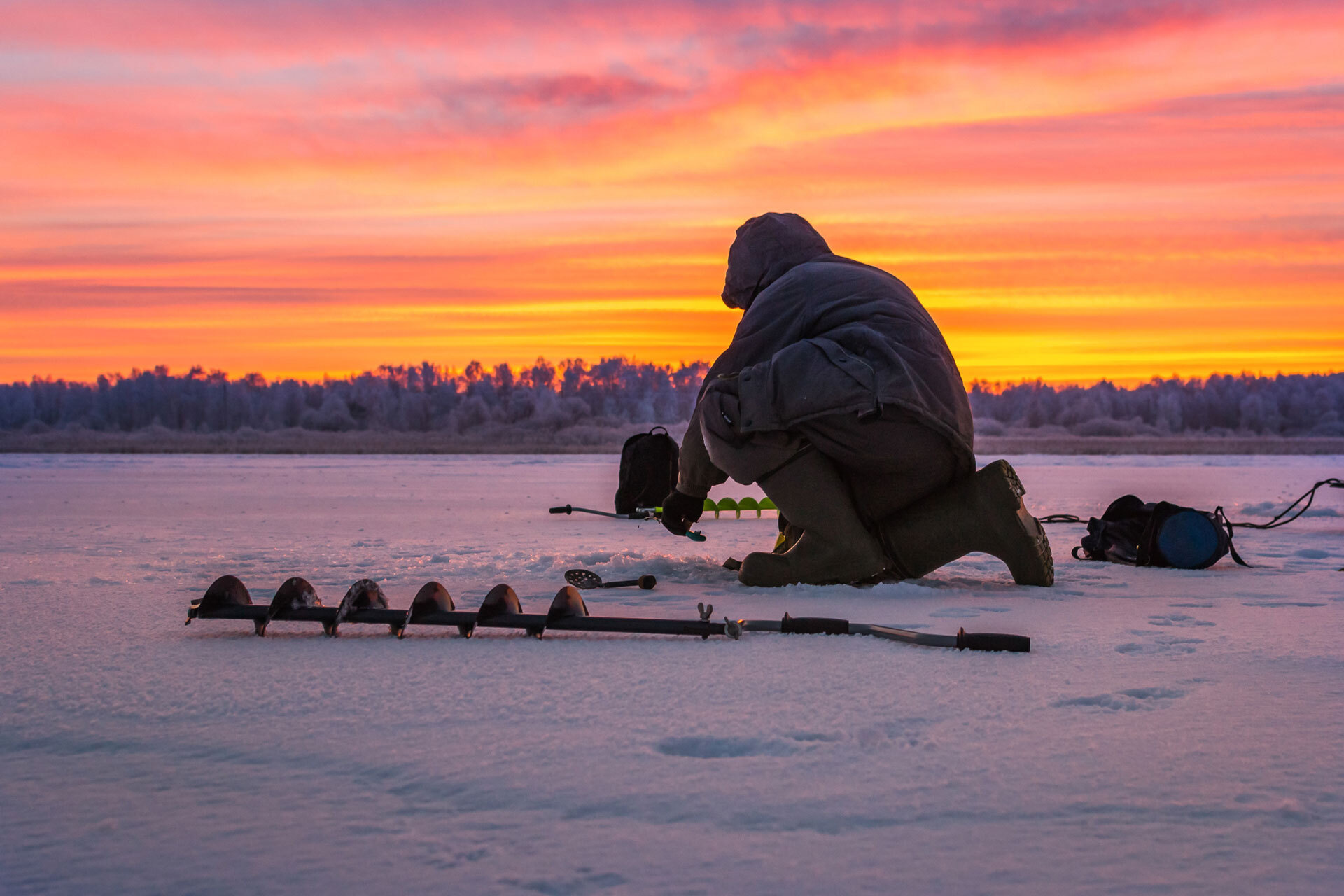Deep cycle lithium batteries have had a large impact on ice fishing, offering anglers the ability to fish for much longer and with greater accuracy. While lead-acid was the battery of choice in the past, it came with a variety of downsides like inefficiency when used in the cold for extended periods of time, and heavy weight. Lithium-ion batteries provide all the same benefits and more that traditional batteries offer ice fishing enthusiasts without the significant downsides that often come with lead-acid batteries. Below we cover the ways in which lithium batteries can enable you to ice fish for longer with less stress.
Handling Cold Weather
Ice fishing naturally involves very cold temperatures, but cold temperatures can be a problem when it comes to battery life. Once temperatures start to drop below 32 degrees Fahrenheit, there is a noticeable decrease in the usability and efficiency of traditional lead-acid batteries. For example, in these colder temperatures, lead-acid batteries provide only 70 to 80 percent of their rating, or nameplate, capacity. Lithium iron phosphate batteries (LiFePO4), on the other hand, provide 95 to 98 percent of their rated capacity, even in the coldest temperatures. As a result, your lithium-ion batteries will last you for longer periods of time without having to be recharged compared to lead-acid batteries, giving you more time to fish.
When ice fishing, the last thing you want is for batteries that are used to power a variety of tools to have their energy depleted unnecessarily due to cold weather conditions. Lithium-ion batteries last nearly three to five times as long as lead-acid batteries and therefore perform far better in cold temperatures that tend to draw more energy from batteries. A major reason for this is that lithium-ion batteries warm up when used, which helps to lessen the resistance in the battery, simultaneously increasing its voltage.

Saving Crucial Space and Weight
Ice fishing also involves a large number of tools, like augers and fish finders, that can quickly add weight to your trip. Lead-acid batteries do not help with this problem, as they weigh 50 to 55 percent more, on average than lithium-ion batteries. Opting for lithium-ion batteries instead will therefore help you to significantly reduce the weight that must be carried to your ice fishing location.
However, just because lithium-ion batteries are lighter, does not mean they offer less power. In fact, the higher energy density - or the amount of energy a battery can provide in relation to its weight, offered by lithium-ion batteries, like the Outlaw 1072s, results in highly portable power in a more lightweight and smaller package. Anglers can therefore find both weight savings and more energy and power in a lithium-ion battery compared to lead-acid batteries. This allows for lighter packing for your trip which equals a quicker and easier walk to the ideal ice fishing spot.

Power All of Your Ice Fishing Tools
If you are a frequent ice fisher, you know that there are many tools that you need to pack up and take with you onto the ice. For utmost safety and efficiency on your trip, you will likely need to take items such as:
- Portable Battery
- Augers
- Radios
- Electronic items like fish finders, cameras, GPS systems
- Phones and tablets
Portable lithium-ion batteries are a lightweight and portable solution that can offer enough power for multiple tools for as long as eight hours at a time. This is ideal for ice fishing, as it requires multiple tools to be carried to remote locations, and having power and saving weight are both highly important.
Lithium v. Lead Acid: Which is the Right Choice for You?
So, which battery choice is best for your ice fishing needs? To summarize, some of the major benefits that make lithium-ion batteries the superior option are:
- They weigh half as much as a lead-acid battery, saving you weight on your ice fishing trip.
- They are smaller than lead-acid batteries, and therefore take up less space.
- They last longer with less charging time needed, as lithium-ion batteries have an average use cycle of eight to ten hours while only requiring approximately 1 hour to recharge.
- They operate at almost 100 percent of their rated capacity, even in temperatures below 32 degrees Fahrenheit, whereas lead-acid batteries can only be used up to 70 to 80 percent of their rated capacity at these temperatures.
- Lithium-ion batteries have higher energy density and power capabilities, which allows them to power the multiple ice fishing tools you will need on your trip simultaneously.
Ice fishing comes with specific needs and requisite capabilities, as choosing the optimal battery can be overwhelming. If you are looking for the most efficient battery for your ice fishing needs, you can contact a RELiON specialist today to help you navigate the choices available to you.
